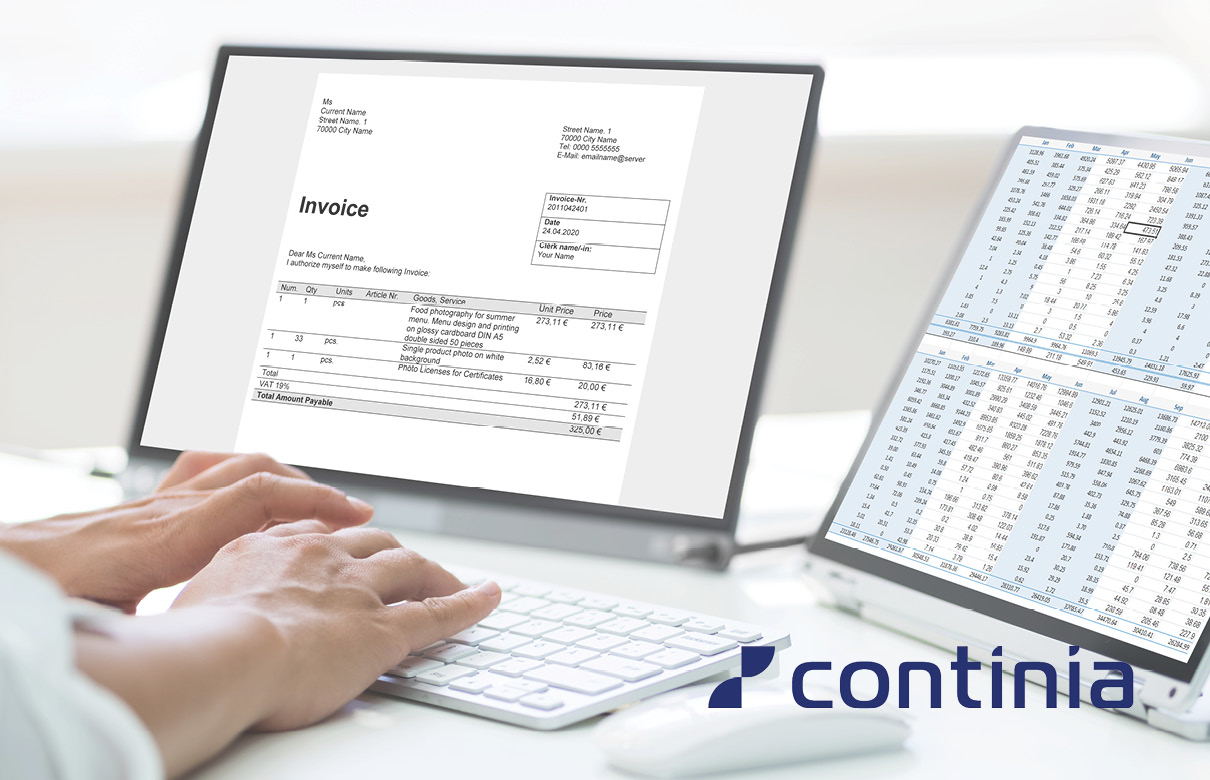The Danish Bookkeeping Act
DOES YOUR COMPANY comply with THE NEW DIGITAL LEGAL REQUIREMENTS IN THE BOOKKEEPING ACT?
DOES YOUR COMPANY comply with THE NEW DIGITAL LEGAL REQUIREMENTS IN THE BOOKKEEPING ACT?
The new Bookkeeping Act requires that in the future, you both carry out your bookkeeping and store your receipts digitally. This can be done either by using a standard system approved by the Danish Business Authority, which ensures that the systems are updated in accordance with the Authority's requirements, or by using your own system, where the company itself continuously complies with the requirements.
The requirements for the act can be summarized in three main areas
The requirements for the act can be summarized in three main areas
-
Bookkeeping and storage
- IT security
- Automation of the bookkeeping process

The law is implemented to ease your administrative burden, giving you more time to focus on business. With the requirement for digital bookkeeping, it will in the future be easier to book purchases and sales, balance bookkeeping with the bank and report annual accounts and VAT. In addition to efficiency gains, the Bookkeeping Act also contributes to creating greater security for the storage of accounting material.
When does the new bookkeeping act apply to you?
The question of when exactly it is time to start digitizing the handling of your accounting depends on whether you belong to accounting class A, B, C, or D. Companies in accounting classes B, C and D are expected to comply with the new requirements and post digitally on 1 July 2024.
IS BUSINESS CENTRAL AN APPROVED STANDARD SYSTEM IN RELATION TO THE NEW BOOKKEEPING ACT?
IS BUSINESS CENTRAL AN APPROVED STANDARD SYSTEM IN RELATION TO THE NEW BOOKKEEPING ACT?
Business Central Cloud is expected to be approved as a standard system in the new Bookkeeping Act when the Danish Business Authority publishes the registered bookkeeping systems on 1 January 2024. If you use Business Central Cloud, you should, therefore, comply with the requirements, as your system is continuously updated with the new releases. In the release for October 2023, Microsoft has ensured that new functionality will be added that meets the requirements of the Danish Bookkeeping Act. If you need help using this new functionality, we are happy to help you. With regard to NAV or Business Central On Premise, the situation is different. Here, your system has the right extensions and adaptations and stores data according to legislation. See here how the law can affect you. Contact us if you need advice and guidance.
This is how you should relate to the act
CONTINIA DOCUMENT CAPTURE, EXPENSE MANAGEMENT AND PAYMENT MANAGEMENT SUPPORT PARTS OF THE NEW BOOKKEEPING ACT
CONTINIA DOCUMENT CAPTURE, EXPENSE MANAGEMENT AND PAYMENT MANAGEMENT SUPPORT PARTS OF THE NEW BOOKKEEPING ACT
If you already use Continia's products to create a digital flow in bookkeeping, you are well on your way to meeting some of the legal requirements. Document Capture gives you the statutory digital document management and with Expense Management you can, among other things, have credit card-related transactions imported directly into Business Central. Payment Management is also relevant, as the solution helps you with bank reconciliation, which is also a requirement of the law.
If you have not yet implemented Document Capture, Expense Management or Payment Management, we can help you. Contact us here if you want to know more.
When does the Bookkeeping Act come into force?
When does the Bookkeeping Act come into force?
The Bookkeeping Act came into force on 1 July 2022, but the requirements for your digital bookkeeping will be added continuously until 2026. Below, you can see a general timeline of the requirements, but take into account that they may change as the legal requirements unfold over several years.
Timeline for requirements for the new Bookkeeping Act
Timeline for requirements for the new Bookkeeping Act
January 1, 2023
New requirements for digital bookkeeping systems from the Danish Business Authority are set
july 1, 2023
Existing providers of digital bookkeeping systems must meet the new requirements from the Danish Business Authority and be notified to them
january 1, 2024
For accounting classes B, C and D, it is necessary to comply with the newly introduced requirements for digital bookkeeping systems for financial years starting on or after January 1, 2024
july 1, 2024
For accounting classes B, C and D that use their own unregistered bookkeeping system with the Danish Business Authority, must comply with the requirements for digital bookkeeping systems from the financial year starting on or after July 1, 2024
january 1, 2026
For accounting class A with a revenue of more than DKK 300,000, the new requirements for digital bookkeeping systems apply from the financial year starting on or after January 1, 2026
july 1, 2026
Accounting class A with a revenue of more than DKK 300,000 for two consecutive years using their own bookkeeping system must comply with the requirements for digital bookkeeping systems from the financial year starting on or after July 1, 2026
Do you want to know more specifically what the new Bookkeeping Act means for you?
Do you want to know more specifically what the new Bookkeeping Act means for you?
Read more about what the new Bookkeeping Act means for you in relation to whether you use Business Central Cloud, Business Central On Premise or NAV.
read more here

